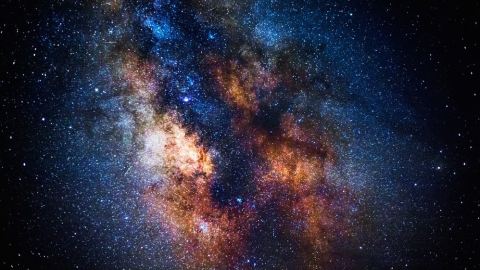Paradox Defines Our Knowledge of the Universe

The theories that physicists have amassed over the centuries to explain our understanding of the universe are ultimately paradoxical. When theories that explain the movement of objects here on Earth are applied to larger cosmological entities like galaxies, for example, the rules fall apart.
Here are some of the perplexing paradoxes that currently dominate physics:
1. Observational data indicates the universe is expanding. Galaxies, for example, are moving away from each other. But galaxies, including our own, are static in space. So it is not galaxies flying through the vacuum of space that create movement, but space itself that is expanding to push galaxies to and fro. Unfortunately, the creation of space is not a physical phenomenon that has been tested, i.e., we cannot verify that it is occurring.
2. Relying on a technique called redshift, we also see that the farther away an object is from Earth, the faster it is moving away from us. The universe is expanding at an accelerating rate. But what force is causing this acceleration? The law of the conservation of energy states that energy cannot be created from nothing. This problem is “solved” by positing dark energy, and whoever can first explain how it works has a Nobel Prize with their name already on it.
3. An essential premise of Einstein’s theory of relativity is that the universe is homogenous, i.e., it looks the same from any point of observation if taken as a whole. But this is inconsistent with observational data that contradicts the Hubble Law stating “the cosmological redshift of an object is linearly proportional to its distance from Earth.”
It is tempting to believe that the advances made in the last hundred years have cleared up our view of the cosmos and that seemingly unified theories like the Big Bang cover all cosmic events. But modern cosmology still lacks explanations for serious observable events.
Read more at Physics arXiv.
Photo credit: Shutterstock





